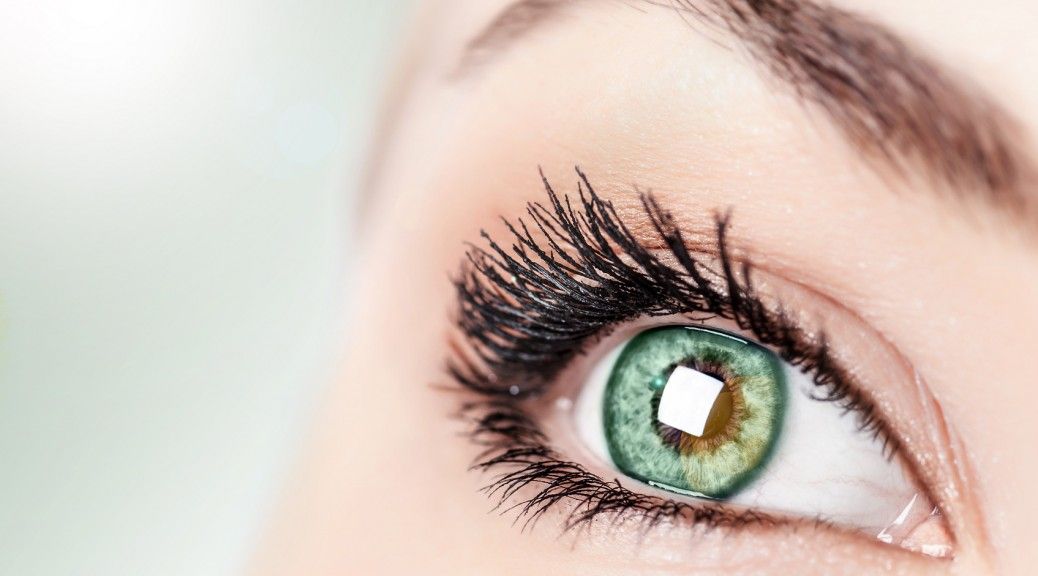
Previous
How Much Water Does Your Liver Need?

Next
Can Laundry Harm Your Liver?
Why a Healthy Liver Equals Healthy Eyes
Anyone can struggle with eye problems. However, the connection between the liver and eyes means that those with liver disease are more prone to declining eyesight. Luckily, there are strategies to support both of these valuable organs.
Many people assume that a decline in eyesight is an unavoidable part of the aging process. According to the well-respected system of medicine known as Traditional Chinese Medicine (TCM), those with liver damage are even more vulnerable to waning eye health than those with a fully functioning liver. While some individuals are certainly more susceptible to eye problems than others, a growing number of healthcare practitioners recognize that several approaches can strengthen and even restore eye health.
TCM
According to TCM, diseases involving the eye are closely related to a liver imbalance. Whenever studying TCM theory, it is important to recognize that a reference to an organ includes the actual organ, but also incorporates the accompanying meridian and its energy. Thus, disharmony in the actual liver or its associated energetics could be at the root of a visionary decline. Although TCM’s terminology may sound foreign, the connectedness between these two organs has been confirmed repeatedly for thousands of years.
As described by Giovanni Maciocia in The Foundations of Chinese Medicine, the following TCM liver imbalances are behind a variety of eye-related problems including:
· Liver blood deficiency – Liver blood is believed to nourish and moisten the eyes. When the liver blood is deficient, common problems include blurry vision, myopia, “floaters” in the eyes, color blindness or dry eyes. From a Western medical perspective, liver blood deficiency can be a result of anemia or scarring of the liver that reduces blood flow through this organ.
· Liver heat – When there is heat in the liver (and associated energetics), the eyes are likely to be bloodshot, or feel a painful or burning sensation. From a Western medical perspective, liver heat can be a result of local inflammation.
· Internal liver wind – Usually a result of extreme heat in the liver, internal liver wind may cause the eyeball to turn upwards and move involuntarily (nystagmus). From a Western medical perspective, internal liver wind can be a result of uncontrolled high blood pressure or enormous emotional stress.
Antioxidants
Since a healthy liver typically benefits the eyes, a nutrient that is helpful to one organ is generally beneficial to the other. Known to support both eye and liver health by scavenging cell-damaging free radicals, antioxidants are typically advised to support the health of both the liver and the eyes.
Two antioxidants in particular have demonstrated success in protecting the eyes: lutein and zeaxanthin. Both of these compounds are called xanthophylls, which are carotenoids related to beta-carotene. Lutein and zeaxanthin are both found in large quantities in the lens and retina of the eyes. Their function is to protect the eyes from damage caused by free radicals, which can interact with and break down healthy tissue. In addition, lutein and zeaxanthin help protect the eyes by filtering high-energy blue light. By filtering blue light, the pigment protects underlying cell layers from potential light damage. Supplementation with lutein and zeaxanthin has demonstrated the ability to prevent macular degeneration.
Another antioxidant, alpha lipoic acid is known to support both eye and liver health. Alpha-lipoic acid increases glutathione levels in the body – a naturally produced antioxidant that protects against cataracts in the eye and helps dissolve toxic substances in the liver.
Eye and Liver Strategies
Whether your vision is less than stellar or your liver function is subpar, there are several strategies that can improve the health of both organs.
· Diet – By consuming great quantities of foods high in lutein and zeaxanthin, nutritionists believe that your sight will benefit. Since these substances are also potent antioxidants, the liver will also gain strength in defending against potentially hazardous toxins. Foods high in these compounds include carrots, dark, green leafy vegetables like kale, green leaf lettuce and beet greens, egg yolks, squash, peaches and sweet potatoes.
· TCM – A practitioner of TCM typically uses acupuncture and herbs to correct any given imbalance. In the case of an eye problem, TCM treatment strategies to tonify a liver blood deficiency, cool liver heat or extinguish internal liver wind will likely be employed.
· Supplement – Supplementing with the antioxidants described (lutein, zeaxanthin and alpha-lipoic acid) are another way to support liver and eye health. For a more specific and comprehensive approach to eye health, a supplement like Advanced Eye & Vision Support Formula may be able to reverse eye dysfunction already in existence.
Although those with liver disease may be more prone, getting older does not have to mean eyesight troubles. Due to the liver’s connectivity to the eyes, those with liver disease who custom tailor their eating habits, receive TCM treatments or ingest high-quality, vision-supportive supplements are especially likely to notice an improvement in their vision and overall eye health.
http://www.allaboutvision.com/nutrition/lutein.htm, Lutein and Zeaxanthin: Do They Protect Eyes and Vision?, Shereen Jegtvig, Retrieved November 21, 2009, Access Media Group, LLC, 2009.
http://www.integrative-healthcare.org/mt/archives/2007/01/massage_for_eye.html, Massage for Eye Health, Nicole Cutler, L.Ac., MTCM, Retrieved November 20, 2009, Natural Wellness, 2009.
http://www.sensiblehealth.com/Journey-01.xhtml, My Personal Journey of Healing, Julia Chang, MSc, Retrieved November 20, 2009, Julia Chang, 2009.
http://www.vrp.com/articles.aspx?ProdID=2168, The Liver: Detoxifying This Vital Organ Nourishes Overall Health and Vitality, Sherrill Sellman, ND, Retrieved November 20, 2009, Vitamin Research Products, 2009.
http://www.webmd.com/vitamins-supplements/ingredientmono-767-Alpha+Lipoic+Acid+ALPHA-LIPOIC+ACID.aspx?activeIngredientId=767&activeIngredientName=Alpha+Lipoic+Acid+%28ALPHA-LIPOIC+ACID%29&source=2, Alpha-Lipoic Acid, Retrieved November 21, 2009, WebMD LLC, 2009.
Maciocia, Giovanni, The Foundations of Chinese Medicine, Churchill Livingstone, New York, NY, 1989; 80-81.







My husband is in the final stage of liver failure and his eyes water all the time, vision is getting bad, and his eyes are blood shot.